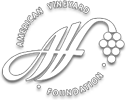Adaptive Evolution of Commercial Wine Strains for Reduced Ethanol
The goal of this research project was to explore the use of the impact of chronic exposure to a moderately inhibitory concentration of furfural under fermentative conditions on cellular metabolism. Furfural inhibits yeast metabolism and therefore growth by competing with acetaldehyde for the reduced cofactor, NADH, generated during sugar catabolism. The reaction of acetaldehyde with NADH produces ethanol. Similarly the reduction of furfural produces a much less toxic alcohol. The yeast cell is therefore faced with a challenging metabolic problem: in order to detoxify furfural in the environment the cells must make less acetaldehyde and therefore less ethanol. Adaptive evolution is a process that exposes yeast to chronic inhibitory concentrations for multiple generations thereby imposing selective pressure to mutate to become more resistant to the inhibitory conditions. The first aim of this project was to screen a collection of commercial wine strains for tolerance to furfural and 5-hydroxymethylfurfural. We expected higher tolerance given that furfural is found during barrel fermentation and aging and resistance to this compound would be expected across wine strains. All 27 of the wine strains tested displayed some level of resistance to furfural in contrast to the 3 laboratory strains that displayed sensitivity. Upon more detailed analysis of sensitivity, the wine strains were grouped into six clusters depending upon their patterns of resistance. Ethanol yields were evaluated for strains in each of the clusters and one cluster appeared to contain strains that were low ethanol yielders, validating this approach as a mechanism to generate strains with reduced ethanol yields. Adaptive evolution experiments are underway to hopefully lead to even further reductions in ethanol production.

